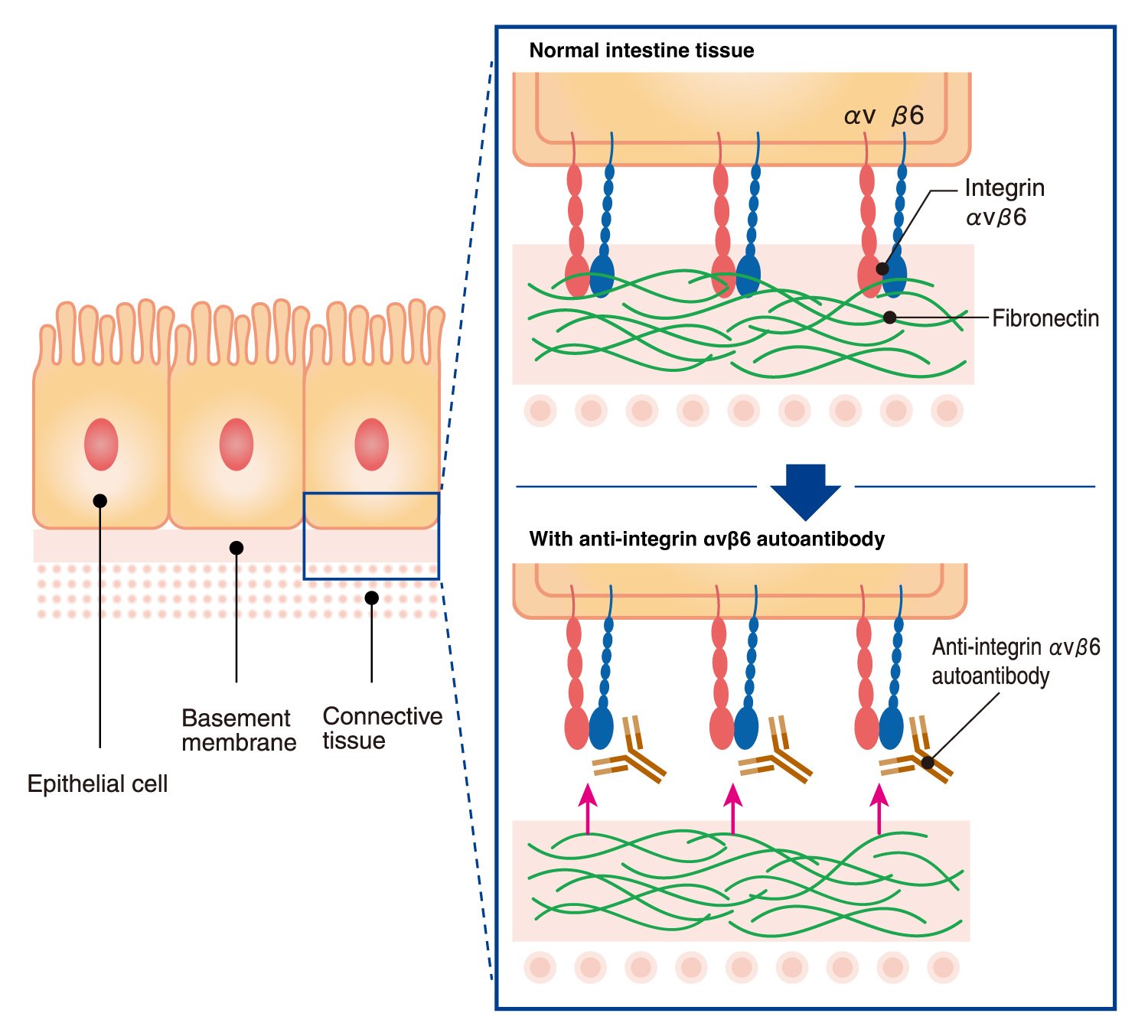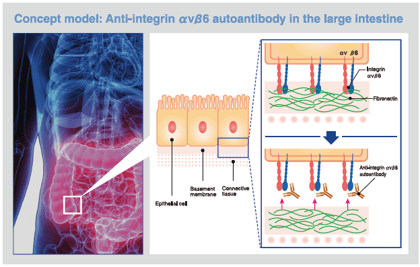Published by Beata Boczkowska, Ph.D. on Sep 7, 2023 3:22:08 PM

Integrins are heterodimeric cell surface receptors involved in cell-extracellular matrix and cell-cell adhesion. In addition, integrins convey two-way signaling between cells and their surroundings and participate in the regulation of a variety of cellular processes, including cell proliferation, migration,
survival, tissue invasion, and innate immunity. Mammalian cells have 18 distinct integrin α subunits and 8 β subunits, which can combine in various ways to form 24 different receptor heterodimers. Integrin αvβ6 is expressed exclusively by epithelial cells and functions as a receptor for extracellular matrix proteins such as fibronectin.
Furthermore, integrin αvβ6 expressed in the intestinal epithelium is involved in suppression of inflammation and prevention of pathogen and parasite infection [1]. Anti-integrin αvβ6 antibodies have been detected in the vast majority of the patients with ulcerative colitis (UC), and its titers have been reported to correlate with disease activity [2]. It has been reported that the anti-integrin αvβ6 antibodies may induce epithelial cell damage as potential pathogenic role of UC (see diagram below)

Inflammatory bowel disease (IBD), which includes conditions like Crohn's disease (CD) and ulcerative colitis (UC), is characterized by chronic inflammation in the gastrointestinal (GI) tract. These disorders are influenced by both genetic and environmental risk factors, and they can have a significant impact on a person's overall health. In 2021, Kuwada et al. conducted a study where they measured the levels of anti-integrin αvβ6 autoantibodies in serum using an ELISA method depicted in the figure below.

The anti-integrin αvβ6 antibodies were detected at higher frequencies in patients with ulcerative colitis compared to those with Crohn's disease , other intestinal diseases, collagen diseases, and healthy individuals. Taking the cut off point to be mean +3 SD of the controls, the positive rate in each group is shown in the table below and the sensitivity and specificity for UC were 92% and 94.8 % respectively. In addition 21 UC patients when the relationship between anti-integrin αvβ6 autoantibodies titer and 2 other indices for UC were observed over time, the titer showed positive correlations with both indices (2) .

For more information about the discovery of this kit, please read this article featuring Dr. Shiokawa and Dr. Kuwada.
References
1. Koivisto L, Bi J, Häkkinen L, Larjava H. Integrin αvβ6: Structure, function and role in health and disease. Int J Biochem Cell Biol. 2018 Jun;99:186-196. doi: 10.1016/j.biocel.2018.04.013. Epub 2018 Apr 18. PMID: 29678785.
2. Kuwada T, et al. Identification of an Anti-Integrin αvβ6 Autoantibody in Patients With Ulcerative Colitis. Gastroenterology. 2021 Jun;160(7):2383-2394.e21. doi: 10.1053/j.gastro.2021.02.019. Epub 2021 Feb 12. PMID: 33582126.
MBLI is proud to introduce the Anti-Integrin αvβ6 ELISA Kit for measurement of anti-integrin αvβ6 antibody levels in human serum.
